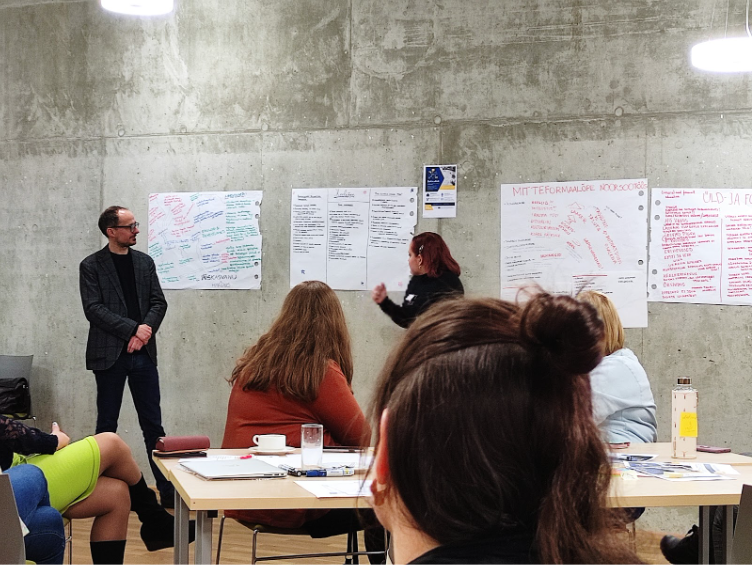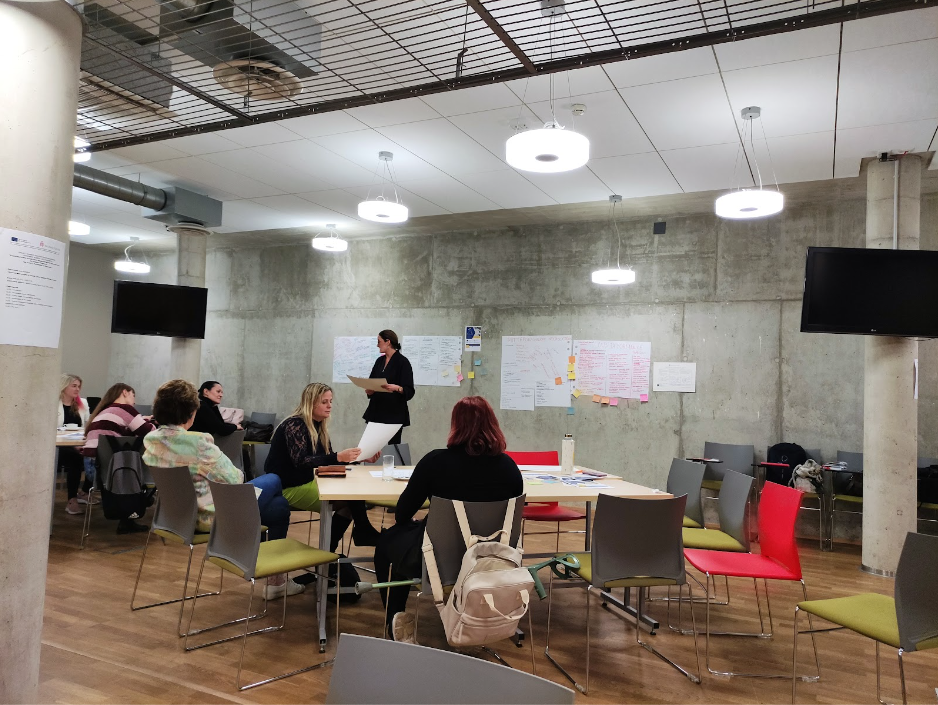In the workshop “How to stay on chosen paths” was held at Tallinn University on 23.03.23. Answers were sought to how universities, together with partners from the country, could contribute to the lifelong learning of Ukrainian war refugees in Estonia. 30 people participated in the workshop from the Ministry of Education, Refugee Aid, Integration Foundation, Tallinn University and Tallinn University of Technology library, People’s University, Viimsi municipality government, vocational education, primary education, general education and higher education.
The workshop was led by guest lecturer Lianne Teder, associate professor Larissa Jõgi and prof. Kai Pata from Tallinn University’s Institute of Educational Sciences, from the research direction of continuing education and prof. Daniele Monticelli from the Humanities Institute with youth work students. The workshop was conducted under the Erasmus+ project Supporting Ukraine through citizen engagement at Baltic Universities.

In the discussion in the form of a world cafe, four topics were discussed: formal education, informal education, lifelong learning and language learning for Ukrainian war refugees.
Problem areas, good practices and opportunities for moving forward were mapped with joint activities.
The need to share good practices in different educational institutions on how to integrate Ukrainian children and youth, for example through mentors who are cultural mediators who also help to understand culture and discover opportunities for participation in society, was pointed out as the pain point of formal education.
A major bottleneck is the transition of Ukrainian children from basic education to the next level of education. Career education in educational institutions must become more accessible for Ukrainian children to find learning and career opportunities. Here, we need more people’s advisory support so that Ukrainian children can find what they need from digital information and be able to make appropriate choices between learning opportunities in vocational education and gymnasiums. As one of the opportunities for lifelong learning, the People’s University in Tallinn offered the opportunity to do supportive training with students for integration into society. An example could be training for parents to better understand Estonian study and career opportunities.

The need to create personal forms of language development, which are more playful and personal, was pointed out as a bottleneck in language learning. One idea was to offer voluntary language and culture friend training to students who could be a support to their Ukrainian peers. A bank of ideas could be created from the cross-cultural practices of non-formal education, for example, together with youth work students within the framework of Tallinn University’s LIFE problem-based learning course. The need for a cooperation body was also raised, where different parties from the public sector, universities and non-profit organizations and organizations representing Ukrainian communities would be involved in providing lifelong education for Ukrainians in Estonia at a common table.
During the next two years of the Baltics4UA project, together with the students, various activities will be initiated for the better inclusion of Ukrainian war refugees through education. In the near future, similar workshops mapping the possibilities of support for Ukrainian war refugees will also be held at Lviv University of Technology, University of Latvia, Kaunas University of Technology and University of Tartu. Through the cooperation activities of the universities of the Baltic countries, the best practices of acting as citizens are found to contribute in moments of crisis.